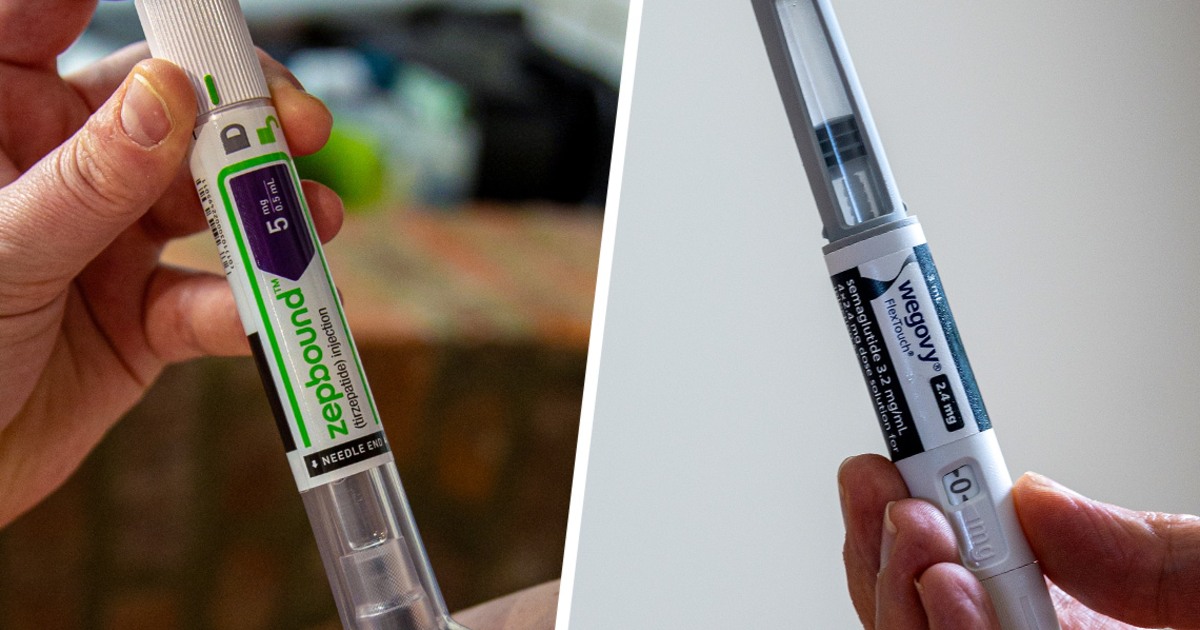
Zepbound Outperforms Wegovy in Weight Loss Trial, Eli Lilly Claims
Eli Lilly has announced exciting results for its weight loss drug Zepbound, which, in a recent clinical trial, has proven to be more effective than Novo Nordisk’s Wegovy in shedding pounds. The trial, funded by Lilly, compared the two medications directly for the first time, showing significant differences in weight loss outcomes. Zepbound, which contains the active ingredient tirzepatide, was tested against Wegovy, which uses semaglutide. The results have stirred the conversation around weight loss treatments, as the new drug shows a stronger impact than what has been known from previous studies.
In the trial, patients who received weekly Zepbound injections lost an average of 20.2% of their body weight, equating to roughly 50.3 pounds, over the course of 72 weeks. In contrast, those who took Wegovy lost an average of 13.7% of their body weight, or 33.1 pounds, within the same period. This translates into a 47% greater weight loss for those on Zepbound compared to those on Wegovy, according to Lilly’s findings.
Also Read:- School Bus Cancellations in Sault Ste. Marie and Surrounding Areas Due to Poor Road Conditions
- Dylan’s Shocking Comment Leaves Sophie Reeling on Love Island Australia
This landmark study, involving 751 adults from across the U.S., including Puerto Rico, was randomized and controlled, providing robust data for comparison between the two treatments. Both groups involved individuals who were overweight or had obesity. While Zepbound came out on top in terms of weight loss, experts like Dr. Susan Spratt, an endocrinologist at Duke Health, emphasized that both drugs are highly effective for those seeking weight loss solutions. Dr. Spratt pointed out that while the weight loss results are remarkable, patients should also consider other factors like health outcomes and side effects when choosing between the two drugs.
Zepbound’s tirzepatide works in a similar way to Wegovy’s semaglutide, both mimicking a hormone that helps reduce appetite and food intake. However, Zepbound also mimics a second hormone called GIP, which may contribute to its superior weight loss results by improving the body’s ability to break down sugars and fats. Despite the promising results, the full impact of Zepbound’s potential on overall health remains to be explored. For instance, Wegovy has been linked to a reduced risk of heart disease in people with obesity, a factor that may influence patient choices.
Side effects for both drugs are similar, typically involving gastrointestinal issues like nausea, vomiting, and abdominal pain, although they are usually mild to moderate in severity. Dr. Christopher McGowan, a gastroenterologist and weight loss specialist, noted that his patients have reported a slightly more favorable experience with Zepbound, despite the potential side effects.
While Zepbound’s promising results might make it the preferred option for many, Dr. Spratt and other experts stress that the final decision should depend on individual circumstances. For many patients, factors like cost, availability, and insurance coverage will play a critical role in determining which medication they ultimately choose. For now, Eli Lilly is set to present these findings at a medical conference next year, hoping to push forward with this innovative treatment for weight loss.
Read More:

0 Comments